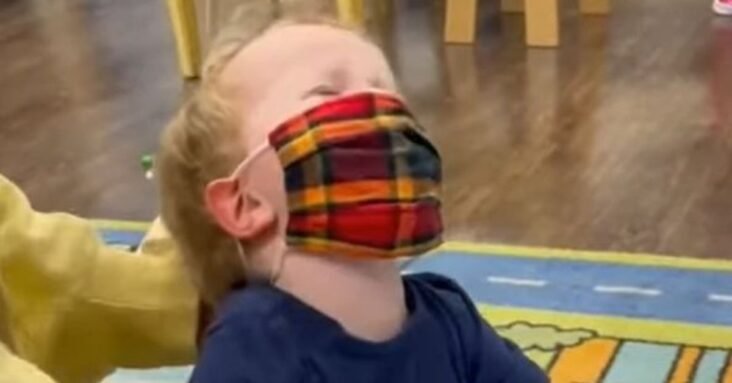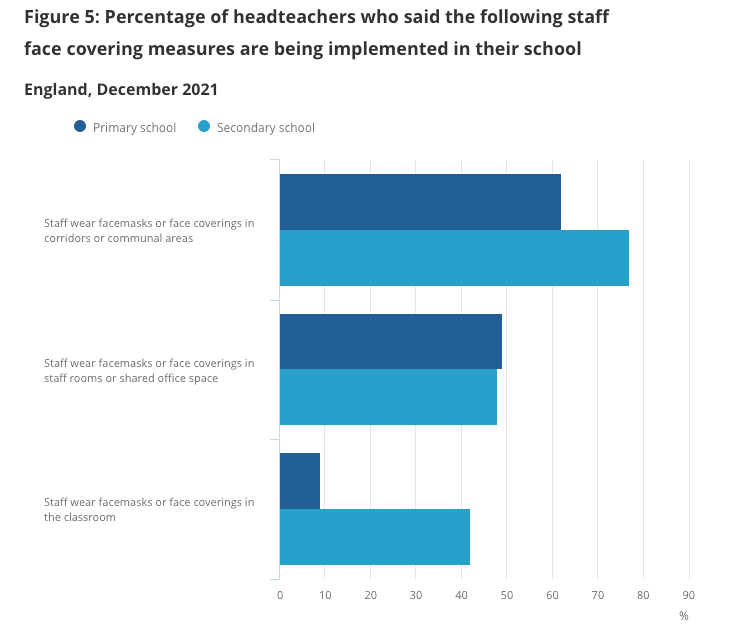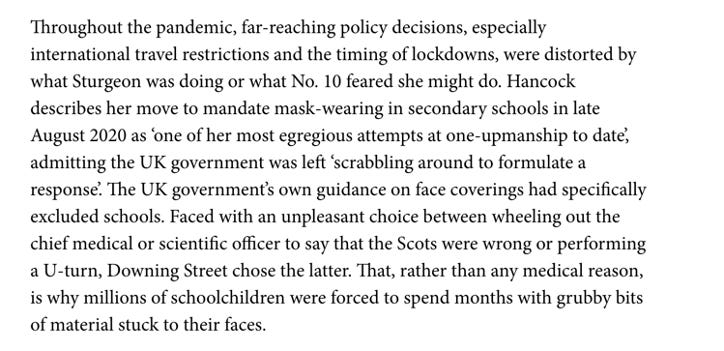
It’s fair to say that mask mandates in children were controversial. They were mandatory in schools across several European countries and German states for the entire 2020-2021 school year until autumn 2021.
In the U.K., secondary school children were required to wear masks only in communal areas, while primary school children were not required to mask up.
So, what does the evidence now say?
A recent systematic review on child mask mandates for COVID-19 concluded that “real-world effectiveness of child mask mandates against SARS-CoV-2 transmission or infection has not been demonstrated with high-quality evidence. The current body of scientific data does not support masking children for protection against COVID-19”.
The final analysis of the review consisted of 22 studies, none of which were randomised controlled trials. Out of the six observational studies that reported an association between child masking and lower infection rates, all had a critical or serious risk of biases. On the other hand, 16 other observational studies found no association between mask-wearing and infection or transmission.
The Cochrane (A122) Review on physical interventions to interrupt or reduce the spread of respiratory viruses also reports the lack of randomised evidence in children.
The review evidence is at odds with the BMJ stance in 2022 that considered masking in schools undervalued and de-emphasised. The BMJ‘s role as a fervent supporter of lockdowns, zero-Covid and masking of children calls into question its impartiality. Such a non-evidence-based approach has only served to support harmful positions against children.
However, the good news is that most children made pragmatic, reasoned judgements: headteachers reported that only one-third of secondary school children wore classroom masks in December 2021.
The Lockdown Files of Matt Hancock’s WhatsApp messages revealed that in the U.K., Hancock, Whitty and Johnson knew full well that non-medical masks do very little to prevent virus transmission.
The decision to instigate mask mandates in English schools was made to appease Nicola Sturgeon.
While most countries have removed mandates, the U.S. remains an outlier as the CDC continues to recommend them for two-year-olds and upward.
As an outlier, its continuation of masking children has drawn concerns about the U.S. policy and its scientific reasoning.
The U.S. policy on such young children is without precedent. There are negative impacts on speech, language and learning, mental health and social-emotional well-being. Randomised controlled trials report problems with heat, humidity, pain and shortness of breath in children with masks.
Despite the lack of evidence and the known harms, the CDC persists in its advice.
Part of the reason may be the reluctance to admit past errors: Paul D. Thacker’s Disinformation Chronicle reports:
The CDC has not put out quality science on masks through its journal Morbidity and Mortality Weekly Report (MMWR)… Federal officials seem afraid to run a randomised controlled trial (RCT) on masks, likely because they suspect the results will show masks don’t prevent the spread of respiratory viruses.
The former CDC Director, Rochelle Walensky, undoubtedly added to the wrong policy advice, as she said masks lacked equipoise – a supposed lack of conflicting evidence. Therefore, American advice comes down to what the CDC Director believed, not what she could prove.
School policy varied depending on which U.S. state you lived in. Children became political footballs who bore the brunt of the pandemic mistakes. The U.S. should put the needs of children first and remove the advice to mask children until high quality evidence demonstrates the effectiveness of intervening. The U.S. Academy of Paediatrics needs to start the ball rolling by retracting its advice based on incorrect statements.
The decision to mandate masks for schoolchildren was driven solely by political motives. Its implementation and interpretation varied depending on the region, leading to the distribution situation. This saga is mired in conflicting opinions, egos and politics. Moving forward, we must prioritise an evidence-based approach: ensuring interventions involving children are always made in their best interests.
Prof. Carl Heneghan is the Oxford Professor of Evidence Based Medicine and Dr. Tom Jefferson is an epidemiologist based in Rome who works with Professor Heneghan on the Cochrane Collaboration. This article was first published on their Substack, Trust The Evidence, which you can subscribe to here.
Stop Press: A study published by Cambridge University Press found higher self-reported Covid infection rates in mask users than non-mask users: 33% higher in those who wore a mask often or sometimes and 40% higher in those who wore a mask almost always or always.







